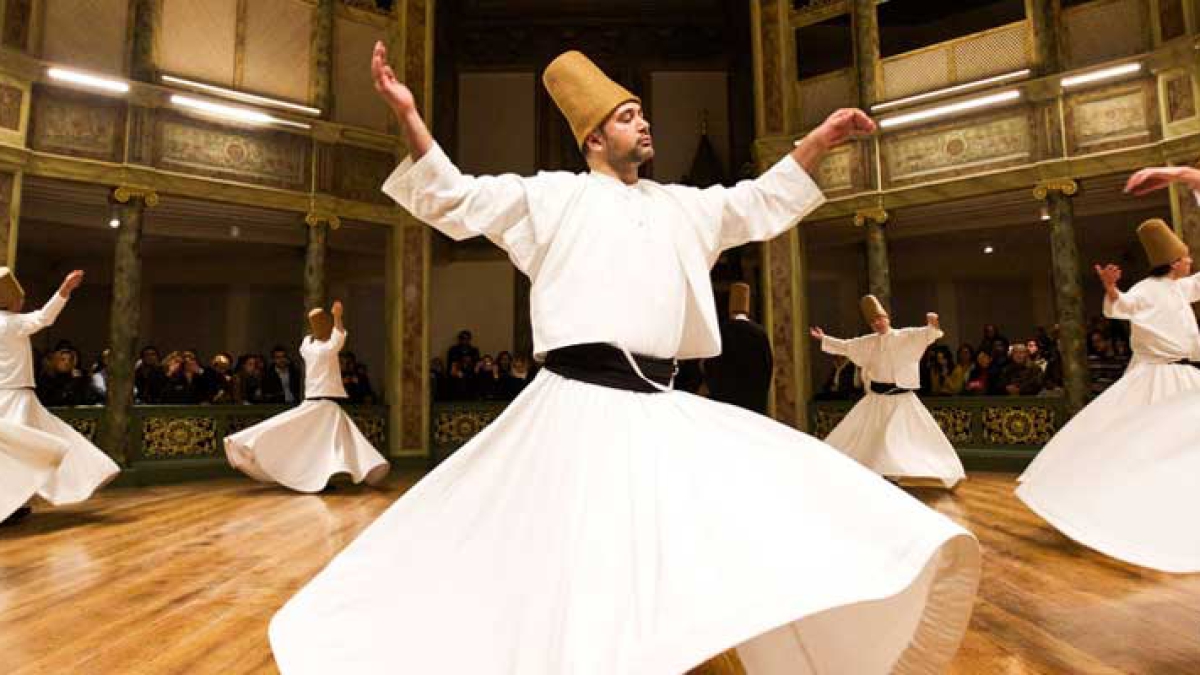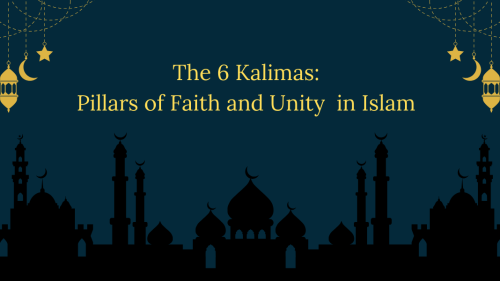Role of Mysticism in Unification and Peaceful Coexistence of People in India with Special Focus on Islam

"For, never would thy Sustainer destroy a community for wrong [beliefs alone] so long as its people behave righteously [towards one another]. And had thy Sustainer so willed, He could surely have made all mankind one single community: but [He willed it otherwise, and so] they continue to hold divergent views [all of them,] save those upon whom thy Sustainer has bestowed His grace. And to this end has He created them [all]" (Quran 11: 117-119)
"AND [know that] all mankind were once but one single community, and only later did they begin to hold divergent views. And had it not been for a decree - that had already gone forth from thy Sustainer, all their differences would indeed have been settled [from the outset]." (Quran 10:19)
"...this expression alludes not merely to mankind's one-time homogeneity, but also by implication to the fact, repeatedly stressed in the Qur'an (e.g., Surah Al-A'raf 7:172), that the ability to realize God's existence, oneness and omnipotence is innate in man, and that all deviation from this basic perception is a consequence of the confusion brought about by man's progressive estrangement from his inborn instincts."1
Mysticism:
Mysticism is nearly universal and unites most religions in the quest for divinity.2 Mysticism is a quest for a hidden truth or wisdom: the treasure hidden in the centers of our souls. "Since the beginning of consciousness, human beings both men and women have walked the path of return of recognition and reunion with the Source of Being".3 Thus, it is man-God unity. Aldous Huxley has stated that 'a totally unmystical world would be a world totally blind and insane' and the Indian Poet Rabindranath Tagore has noted that Man has a feeling that he is truly represented in something which exceeds himself. In short we can define mysticism as a union with the Divine, or a reunion with the infinite.
Mysticism or mystical experience differs not only from sane individual to another but also widely from country to country. So, we have Chinese Mysticism, Indian Mysticism, Persian, Greek, Primitive, German, the Mysticism of the Greek Church, The Mysticism of the Roman Church, New Testament Christian Mysticism and Islamic Mysticism generally called as Sufism or Tasawwuf. Since our focus is on the role of Islamic mysticism in India so the attempt is made to remain confined to that only.
Islamic Mysticism:
Sufism is the name given to the mystical movement within Islam; a Sufi is a Muslim who dedicates himself to the quest after mystical union or better said, 'reunion' with his Creator The name is Arabic in origin, being derived from the word suf meaning "wool"; the Sufis were distinguishable from their fellows by wearing a habit of coarse woolen cloth, in time when silks and brocades had become the fashion of the wealthy and mundane-minded, symbolic of their renunciation of worldly values and their abhorrence for physical comforts.4
The Sufis trace their origin of Sufism or Tasawwuf to the Prophet of Islam. The claim of Sufis that Tasawwuf had its source in the life of the Prophet (PBUH) and his companions is based on certain facts. The Prophet led an extremely simple life. His personal possession, even at the time when the whole of Arabia acknowledged his supremacy, comprised of no mere than an ordinary mattress to sleep on and a pitcher to keep water in. He fasted for months on end and slept little preferring to spent the major portion of the night in prayers (Quran 73:20). His very life was the proof and example of his knowledge and commitment to both the theoretical concepts of Islam as well as its everyday practice.5
Sufism (Tasawwuf) embodies the purification of the heart by sincerely and obediently practicing the lifestyle of the Prophet Muhammad (PBUH) in all spheres of his life. All earnest Truth seekers, whatever may be their creed, cult, color, or country, are actually seeking a way of escape from disease, disharmony, discord, and other limitations of the personal self and its transient world, and an entry into the full consciousness of their own perfect Divine or true selves, which as eternal facts of being, ever await recognition and acceptance.6
The role of Mysticism in India:
By the time the 'Abbasid Caliphate fell, there were many Sufi orders that had sprung up across the Muslim world, founded by eminent scholars. They built Khanqahs or hospices which were the focal points for the spread of Islam and Islamic teaching. Under each main center, sub-centers sprang up which owed their allegiance to the order. The Sufi saints exercised their spiritual power and had a greater hold on people. There is not only the impact of history on the past, but also the impossibility of understanding the present surface of diversity among Muslims without a historical discourse on Sufism.
Sufism had an instrumental role in spreading Islam in India. Muslim Sufis have devoted themselves to spread the universal message of Islam with love, compassion or that is to say according to the actual teachings of the Prophet (PBUH) for centuries. Due to these peaceful efforts on the part of the Sufi saints this spirit of love and compassion was so deeply embedded in Indian society that it became part and parcel of its value system. The social integration we find today in India owes greatly to the efforts made by our Sufis and saints. The Sufis belonged to different tariqahs (orders). The most prominent Sufi orders of India are the Shadhiliyya, Chishtiyyah, Qadriyya, Suhrawardiyya etc.
The Shadhili order:
The Shadhili Tariqa is a Sufi order founded by Abul Hasan Ali al-Shadhili. It was brought to India by Sheikh Abu Bakkar Miskeen of Kayalpatnam (Tamil Nadu) and Sheikh Mir Ahmad Ibrahim of Madurai (Tamil Nadu). Mir Ahmad Ibrahim became the first of the three Sufi saints revered at the Madurai in Tamil Nadu. Of the various branches of the Shadhili Tariqa are the Fassiyatush, found largely in India, Sri Lanka and Pakistan. Sheikh Shadili was the first to introduce Zikr-I Jahri. That is meditating Allah in louder voice so as to get control over all the five human sensations. Shadhiliyya preaches to enjoy all (Halal) permitted matters in the world and thank Allah always who provided everything, hence the name Tareeqush Shukr.7 In other words it can be said that there way was according to this verse of the Quran, "So remember Me; I will remember you. Be thankful to Me and do not be ungrateful.. (Quran 2:152).
The Chisti Order:
Khwaja Muinuddin Chisti (1141-1235), the founder of Chishti order made a significant role in the unification of people of diverse culture and religion in India. He was born in Sijistan (Sistan) and brought in Khurasan. He left home and began to wander from place to place in search of knowledge. When he reached Delhi, he was already a well-known Sufi and his fame preceded him. He drew crowds where ever he went. He was a great humanitarian and a well-wisher of his fellow men, caring not only for their spiritual uplift, but also for their physical well being. He settled in Ajmer around 1206.8 Khwaja Muinuddin's simple, ascetic life attracted the entire sundry, irrespective of their religion, the Muslims and the Hindus, the conqueror and the conquered, all were reminded of the social and moral values, which were universal in nature. He did not attach importance to material power and wealth. He laid stress only on piety, simplicity, lawful earning, devotion to God and service to mankind. His teachings thus appealed to all: Hindus and Muslims, rich and poor, high and low. He addressed basic human nature, which is basic to all human beings.
-------------
Notes:
1. The Meaning of the Quran, M Asad, Explanation of 10:19
2. http://www.themystica.com/mystica/articles/m/mysticism.html, accessed on 4-2-2012
3. "Doorkeepers of the heart: Sufi Women Mystics Sermon for 11 14 2004 by Lone Jensen, Accessed on 3rd feb, 2011"
4. Muslim Saints and Mystics Episodes from the Tadhkirat al-Auliya' (Memorial of the Saints) by Farid al-Din Attar Translated by A. J. Arberry, OMPHALOSKEPSIS, Ames, Iowa, 2000
5. Dr Farida Khanam, Sufism an Introduction, Good word Books Nizamuddin West Market New Delhi, Revised edition, 2009, 9
6. S. Raynaud De La Ferriere, Mysticism in the twentieth century, 1951 Paterson Brokensha PTY. LTD., 65 Murray Street, Perth, Western Australia.
7. http://www.shazuli.com/accessed on 16 feb 2012
8. Dr Farida Khanam, Ibid,65
These are his precepts as recorded in Siyar al Awliya (1388): "If one wishes to protect himself from this conflagration (of Hell) he must worship Allah. There is no better way than this." On asking what was meant by this kind of worship he replied: "To listen to the plight of the oppressed, to help the needy and fill the stomachs of the hungry. The man who does these three things may consider himself a friend of Allah. Firstly, he should have generosity like a river; secondly kindness like the sun and, thirdly humility like the earth. The man who is blessed is the man who is generous. The man who is respected is the man who is clean. The man who removes the burden of others is the real mutawaqil. To be firm in the Way depends on two things: to respect the services of Allah and to pay homage to Allah."9
Now, one can itself assume from these teachings that how Sufi mystics of Islam propagated their faith in a peaceful and practical way and helped in strengthening the bond of brotherhood, peace and love among people in India. The then Hindu society was shackled by a rigid caste system that classified people as either high or low born. The lower classes were regarded as being of inferior birth and therefore, inherently debased. When they find this spiritual preceptor treating everyone equally they flocked around him for finding the peace of heart of which they were deprived due to consistent injustice done to them since their birth from generations to generations. He looked after the poor and needy as if they were his own kith and kin. However, he never attempted to convert them to Islam instead of that it was the Islamic concept of the equality of all human beings that played the greatest role in bringing them into the fold of Islam. Even today we have the living example of people flocking to his shrine at Ajmer irrespective of caste, creed, color, religion, seeking guidance from his teachings and solace from disappointments. His love and generosity for poor and destitute can be guessed by this fact that till now he is known by the name of Khwaja Gharib Nawaz. His famous disciples who lived in Delhi were Shaykh Hamiduddin of Nagaur (1192-1274C.E) and Shaykh Qutubuddin, Bakhtiyar kaki (d.1235), Shaykh Fariduddin Ganj Shakar (1175-1265C.E), Shaykh Nizamuddin Awliya (1238-1325), Shaykh Nasiruddin Muhammad Chiragh Dilli (1276-1356). They carried on the Silsila of their mentor by following him in true spirit and thus carried on the message of peace, brotherhood, sympathy, cooperation and love throughout their life.
Nizamuddin Awliya was a prominent and most popular successor of Chisti order during his lifetime and even after his death. In his lifetime people used to flock to him in such a vast number that he acquired a vast experience in dealing with all types of individuals. Being unusually sensitive, he developed a deep insight into human nature and was able to satisfy most of his visitors. Nizamuddin Awliya believed that, above all one had to be a good human being only then could one be a good Muslim or a good Hindu. He would often recount this hadith to his disciples: "whatever you would not like to be done to yourself, do not wish it to happen to others. Wish for others what you wish for yourself."10
He did not discriminate between people of different religions. To him all were God's creatures, equally worthy of respect and deserving of help. Consequently, Shaykh Nizamuddin's langar (free food) was served to both Hindus and Muslims. He was the epitome of epitome of tolerance and broadmindedness and showed a total lack of any bias. Once seeing a group of Hindus at worship, he observed: "Every community has its own path and faith, and its own way of worship."11 He taught his disciples to keep the peace at all times and to develop good relations with every one, irrespective of caste, color or creed, for Islam did not teach violence against or discrimination between human beings. Only Taqwa (Piety) and certainly not material grandeur- could raise one's status in the eyes of God. He thus devoted his entire life to bringing people closed to the true spirit of religion. Islam to him was not a set of hollow rite and rituals. It was rather a superior ethical code. He left behind himself his disciples who were great scholars, writers and poets. The most famous among them are Amir Khusro, Amir Najmuddin Hasan Sijzi and Ziyauddin Barni.
The Qadri Order:
Shaykh Abdul Qadir Jilani (1077-1166) was the founder of Qadri Silsila. He was descended from Imam Hasan, the Prophet's grandson.12 Abdul Qadir's mystic strivings were designed to meet the challenges of the era in which he lived. The decline of Muslim political power disturbed the social structure which subsequently led to the lowering of Muslim morals. Spiritual life was eclipsed by material obsession. In this milieu, Shaykh Abdul Qadir's movement for spiritual uplift proved so effective that a number of Sufis adopted Qadri mystic ideals and took it upon themselves to disseminate them. This led to the formation of the Silsila or the chain of a spiritual order, who's aim was a large scale regeneration of the spiritual fabric of society. The spiritual successors of Shaykh Abdul Qadir Jilani carried his teachings to distant lands.13 The Qadri Tariqa in India was established by Sayyid Muhammad Makhdum Gilani (d.1517), known also as Muhammad Gawth, who was direct descendent of Shaykh Abdul Qadir through his son, Abd al Wahhab. There were Qadriyya establishments in Sindh, Punjab, Gujarat, Deccan, and Kashmir as well.14
The devotion to God constituted the ideal life for the Shaykh. The more a man endeavors to 'live for the Lord the nearer he comes to realizing the divine purpose of life. One has to surrender his life, his will, and his material means to God if he aims at divine realization.'15 In Futuh al-ghayb he compares the spiritual guide to "a wet nurse who feeds the baby." Shaykh Abdul Qadir urges his followers to desire for others what they desired for themselves, and to refrain from wishing for others what they did not wish for themselves. He quoted the following verse of the Quran: "Surely God loves the doers of good to others," (3:133) advocating the principle that service to mankind is a worthy spiritual deed and that it is a major religious and spiritual duty to make every effort to bring about the social welfare. When he equated "the service of mankind" with "the highest spiritual activity of man", he greatly broadened the scope of such effort. He looked upon all people as "children of God on earth" and considered that true religious dedication was to be found in giving assistance to the indigent. "Whoever fills his stomach while his neighbour starves is weak in his faith."
Suharwardi order:
The Suharwardi order traces its spiritual origins to Shaykh Abu Najib Suharwardi (1097-1168), though it was his nephew and disciple Shaykh Shihabuddin Suharwardi, (1145-1234) who laid the true foundations of the order. The Suharwardi entered India in the 13th century and went on to consolidate their hold over the Indian mind as a result of the activities of the khalifaa of shaykh Shihabuddin Suharwardi.
The first missionary to visit Kashmir in the time of Raja Suhadeva was Sharaf-ud-Din Syed Abdur Rahman Turkistani and he was a spiritual disciple of Shah NimatullahWali Farsi, a Khalifa of the Suhrawardi School of Sufis founded by Shaikh-ush-Shuyukh Shaikh Shihab-ud-Din Suhrawardi. The simplicity of faith of Bulbul Shah impressed Rinchan, (the ruler of Kashmir who was originally a Ladakhi); so much that he converted to Islam and became the first Muslim Ruler of Kashmir as Sultan Sadar-ud-Din. The arrival of a host of other Sayyids gave a big boost to conversion of people of Kashmir to Islam. The prominent among these were Sayyid Jalal-ud-Din of Bukhara, Sayyid Taj-ud-Din (cousin of Shah-i-Hamadan), and Sayyid Hussain Simanani.
G.M.D. Sufi in his history of Kashmir, "Kashir" gives a very detailed account of the spread of Islam in Kashmir as well as mentions about the arrival of various Muslim Missionaries. However, according to Sufi, the greatest missionary whose personality wielded the most extraordinary influence in the spread of Islam in Kashmir was Mir Sayyid Ali Hamadani also known as Amir-i-Kabir or Ali-i-Sani and popularly called Shah-i-Hamadan. His genealogy can be traced to Hazrat Ali through Imam Husain, he being sixteenth in direct descent from Ali Bin Abi Talib. He belonged to the Kubrawi order of Sufis founded by Shaykh Najm-ud-Din Kubra of Khwarizm who died in 618 A.H (1221 A.D.). The Kubrawis are a branch of the Suhrawardi Sufis. The local Hindu ascetics are said to have challenged Shah-i-Hamadan for trying their supernatural powers and after being humbled by him accepted Islam. Shah-i-Hamadan laid emphasis on justice and fought against the rigidities of the caste system and prepared the people to work. The preaching Institutions (Khankas and Mosque) associated with him are situated in different countries. In Kashmir he also introduced the different handicrafts besides teaching of Islam. As a result the handicraft industry received a fillip in Kashmir. He laid greater emphasis on earning legal livelihood and so rejected all the means available for the support of the Sufis. He earned his livelihood by cap making. This impact of Shah-i-Hamadan continues to be felt after six hundred years of his death. In fact, the modern Kashmir has the spiritual inputs of Shah-i-Hamadan."16
For centuries the Sufi traditions, together with their devotional practices and their modest ways of life have attracted a large number of people from different regions from all over India feel invited to share certain rituals and festivals. In this way Sufism emerges not only as a moral but also a comprehensive socio-religious force. Sufis put their emphasis on personal piety and it was mainly due to their charismas that they won new followers. As a rule they retained attitudes of accommodation and adaptation while they abstained from religious and communal conflict. Instead they showed love for humanity, which was free from communal boundaries and independent of worldly possessions and till today they are regarded as a peaceful element in public life and civil society.17 It is not difficult to see the lack of higher vision of life has resulted in an over-emphasis on comparatively less important aspects of our worldly existence, which fact in its turn has been the root cause of all our strives. We have drifted away from the spirit of truth in thought, word, and deed, which was the basic philosophy of Islamic mystics. India is at present in the utmost need of the revival of the spirit and teachings of those greatest missionaries and saints to restore peace, unity, love, brotherhood, justice and humanity. The basic and most important of every Sufi saint was to call people to the realization of God because the realization and reunion with God is the only source of unity of mankind.
Difference is a part of God's creation plan. It exists in every aspect of life. The same is true of religion. We must simply learn the 'art of difference management' rather than the 'art of difference elimination'. For no one has the power to remove the differences. Difference of opinion also leads to high thinking, which is the sole key to all kinds of human progress. So we have no option other than to live with differences with peace and unity which is possible only through the reawakening of our souls to the realization of the Omniscience and Omnipotence of its Creator.
-------------
Notes:
9. Siya al Arifin, p.43, quoted from Farida Khanam, Dr., Sufism an Introduction, Good word Books Nizamuddin West Market New Delhi, Revised edition, 2009, 67
10. Dr Farida Khanam, Ibid, 86
11. Dr Frida Khanam, Ibid, 87
12. Dr Frida Khanam, Ibid,112
13. Dr Frida Khanam, Ibid,109-110
14. Dr Farida Khanam, Ibid, 112
15. Al Fath al Rabbani, Sermon XXI, 122-125, quoted from Farida Khanam's, Sufism an Introduction, 119
16. An Article by Muhammad Ashraf, Shah-I Hamadan, the 'Apostle of Kashmir'20th May, 2007 on http://www.kashmirfirst.com/articles/history/070520_shah-i-hamadan.htm, Accessed on 18-02-2012
17. The Islamic path :Sufism, society and politics in india, eds, Saiyid zaheer husain jafri & Helmut reifeld, Rainbow Publishers, New Delhi, 2006.
*****
Abida Quansar is a Junior Research Fellow, Department of Islamic Studies, Jamia Millia Islamia, New Delhi.
Topics: Islam, Sufism Values: Spirituality
Views: 9580
Related Suggestions
Sufism has nothing to do with Islam. In fact, This concept existed even before Islam.
The idea of unification with GOD existed long before in Hinduism and in Christianity. Nirvana or Moksha in Hinduism is like becoming one with GOD and since the Sufis of India were on similar lines, it was easy for them to get accepted in Hindu culture.
This is totally against the teaching of Islam. Allah is separate
from His creation. And even in Jannah, we dont become part of Allah.
The Qadri Order section contains a statement which does not conform to the Shariah. It states, "He looked upon all people as children of God on earth". According to Muslim faith, all people are the creation and servants(Abd) of God but not the children of God. This is a Christian belief. It is possibly a mistake in translation from the book Siyar al Awliya.

















